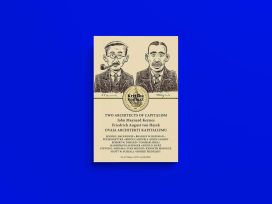The death of Richard Rorty on 8 June 2007 came as a shock to us, although we knew that he had been struggling with cancer. Egon Gál, editor of the current issue and Rorty’s close friend, had been receiving news about Rorty’s health with great sorrow. Hence the introductory essay, which originally he had been looking forward to writing, was written with difficulty and in despair. This issue should have been a kind of
Festschrift commemorating Rorty’s 75th birthday; sadly, it became a farewell to our intellectual mentor and member of the
Kritika & Kontext Advisory Board.
We have been preparing this issue for almost a year, under the title “Richard Rorty at 75”. This was to have been a second dossier dedicated to him in K & K. In 1998, we published an extended, almost seventy-page-long dossier under the title “Profile of a Pragmatic Philosopher” (3-4/1998, see www.kritika.sk). Besides an exclusive interview reprinted at the end of this issue, we published Rorty’s lectures given in Bratislava in June 1992.
Over the past year we were in contact with Rorty more frequently than usual. First, I asked him for a contribution to Kritika‘s anniversary issue. He sent us an unpublished lecture he gave to students in 2005 in Teheran. He added a note that he had edited the paper for us but was not sure whether it would be suitable for Kritika, giving us free hand to edit and shorten the piece as we deemed necessary. We needed to edit nothing and we were pleased to publish it in K & K vol. 33.
Also in this issue we offer a severe but sincere critique by Professor Béla Egyed, who was in Bratislava at the time reading Plato’s Republic with students at the Bratislava International School of Liberal Arts (BISLA). We sent it to Rorty with a certain apprehension, since we were intending to dedicate the next issue to him. We thought it natural to give Rorty a chance to respond – which he did: promptly, succinctly, and firmly, as so often before. Sadly, we now publish it posthumously. We do the same for Rorty’s contribution on Nietzsche, which we originally planned to publish in the next issue.
Reading Rorty’s philosophical and above all political texts, written in brilliant and distinct style, I was fascinated by his personal dedication, sincerity, and concern about issues that societies are able to resolve, but due to inattention, greed, or fanaticism, often neglect. Philosophically, Rorty called himself a pragmatist, politically he was liberal-left (with a certain glee he called himself a “postmodern bourgeois liberal”). For me, however, what defined him was a talk he gave in Bratislava in 1996 at a conference about the role of intellectuals in society. In my K & K editorial in 1998 I wrote about this event:
Instead of offering another variation on the theme of “revering or rebuffing intellectuals”, Rorty launched into a discussion of the insoluble problem of poverty and criminality among African-Americans in the ghettos of American inner-cities. Admittedly, many of us in the audience were somewhat startled by his choice of topic. Gradually, however, he made his meaning clear. Any debate about the role of intellectuals, he explained sincerely and with apologies to his hosts, was irrelevant as long as intellectuals remain unable and unwilling to solve the tragic state of affairs that leaves the inner-city ghettos to languish in poverty and despair.
His expression of concern, worry, and frustration represents for me the quintessential position that an engaged but also humble intellectual should take. It can also be traced in the following statement, about the future: “[I am] very pessimistic indeed […] I do not see how nuclear war is to be avoided or how the poor nations are to be raised to the level of the rich ones.” I believe that his scepticism also contains an appeal that, despite apparent hopelessness, we should not become resigned.
A true sceptic remains silent in depression, a cynic laughs with Schadenfreude, while Rorty pleads with us before it is too late – sadly, after 8 June, only through his texts.






